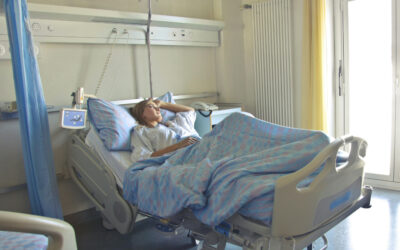Climate change is an escalating global issue with profound impacts on health, particularly in vulnerable populations. moringa, an innovative software platform, is at the forefront of addressing these challenges in both rural and urban India. Focusing on hygiene and sanitation, moringa aims to enhance public health outcomes, with a special emphasis on women’s health, personal hygiene, and comprehensive healthcare services. Integration with Swacch Bharat Mission programs, allows seamless data leverage and enables monitoring of actions and outcomes.
Women’s Hygiene Empowerment
Recognizing the unique healthcare needs of women, moringa prioritizes promoting personal hygiene. In rural areas, where sanitary products are often scarce, moringa conducts awareness campaigns, distributes hygiene kits, and establishes community hygiene centres. These efforts are crucial for ensuring that women have access to the resources they need to maintain their personal hygiene, which is essential for their health and dignity.
Hygiene Kits and Awareness Campaigns
moringa‘s approach includes distributing hygiene kits that contain sanitary napkins, soap, and other essential items to women in rural areas. The platform also runs awareness campaigns to educate women about the importance of personal hygiene and how to use these products effectively. These initiatives not only improve hygiene practices but also help break the stigma surrounding menstruation, fostering a more inclusive and supportive community environment.
Maternal Care
moringa also focuses on improving maternal care, offering prenatal and postnatal services to ensure that mothers and babies receive the best possible care. This includes regular health check-ups, nutritional support, and education on safe childbirth practices. By providing these services, moringa helps to reduce maternal and infant mortality rates, contributing to healthier generations.
Personal Hygiene in Urban and Rural Areas
moringa implements tailored programs for personal hygiene in both urban and rural contexts. In rural areas, it educates communities on basic hygiene practices, establishes sanitation facilities, and promotes the importance of clean water sources. In urban settings, efforts focus on improving public sanitation infrastructure and raising awareness about maintaining personal hygiene in densely populated areas.
Rural Hygiene Initiatives
In rural areas, moringa‘s programs focus on educating communities about the importance of handwashing, safe water storage, and proper sanitation practices. By building and maintaining sanitation facilities, moringa ensures that communities have access to clean and safe environments. These efforts are crucial in preventing the spread of diseases and improving overall health outcomes.
Urban Sanitation Efforts
In urban areas, moringa collaborates with local authorities to improve public sanitation infrastructure. This includes the construction of public toilets, waste management systems, and clean water access points. Awareness campaigns are also conducted to educate urban populations about the importance of personal hygiene in preventing diseases. By addressing these needs, moringa helps to create healthier urban environments, reducing the health risks associated with high population density.
Conclusion
moringa stands as a beacon of hope in addressing the health impacts of climate change through improved hygiene and sanitation in both rural and urban India. By focusing on women’s health, personal hygiene, and comprehensive healthcare services, moringa is transforming individual lives and fostering sustainable improvements in the overall health and well-being of communities. As we move forward, the collaborative efforts of moringa and the communities it serves promise a brighter, healthier future for all. Through its commitment to inclusivity and innovative solutions, moringa is making significant strides in overcoming the challenges posed by climate change and ensuring a healthier tomorrow.
Image Credits: RDNE Stock project on Pexels






